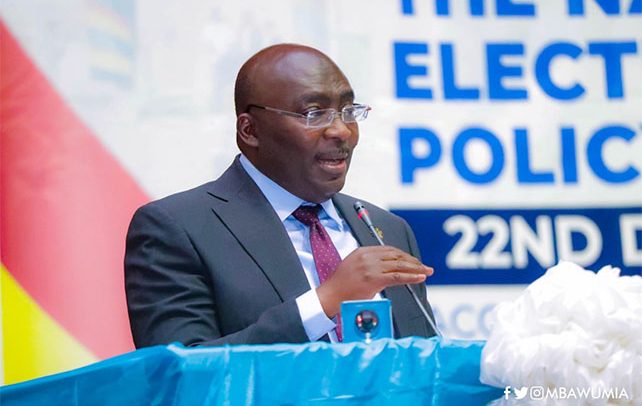VICE PRESIDENT Dr. Mahamudu Bawumia on Monday launched the Integrated Online Learning Programme (IOLP) which offers over 3,000 free, certificated courses and industry attachment for youth and professionals at the University of Ghana.
To be run by the University of Ghana, in collaboration with international partners including Alison, Leyden Educational Foundation and SOLNetwork, the IOLP is designed to make teaching and learning easier, more convenient and more readily available for teachers and students in rural areas virtually in the wake of the COVID-19 pandemic.
According to the Vice President, “In the wake of the COVID-19, with all its socio-economic disruptions, many countries and educational institutions have turned to online learning. To be expected, these initiatives whereby learners can communicate with their instructors and their peers and access learning materials over the internet or other computing networks, have met with several challenges.”
He said, “Another challenge is the lack of infrastructure to digitise and transmit learning materials, as well as having the appropriate human resources to implement e-learning initiatives. Even as the demands for e-learning are growing, we are faced with the human resources constraint; the physical hardware as well as the soft infrastructure.
“With the speed of implementation of e-learning, public policy makers, school administrators, teachers and students all appear to have been caught in the fog of e-learning. What are we doing right? What are we not doing right? Are all subjects adaptable to an e-learning environment? Why and why not? What is the peer learning experience? What is the classroom of the future and how effective have we been?
“These challenges notwithstanding, e-learning is hailed as an essential force in democratising education. It holds the key to inclusive education. It is a way of opening education to populations who otherwise would have restricted access to education because of geography, status or physical handicap. E-learning is an appropriate method to instruct students in remote areas, which involves all types of learning and skills development,” he emphasised.
Executive Director of Leyden Educational Foundation, James Boakye, said the programme had been designed to assist government address the huge challenge of unemployment, made worse by the pandemic, by providing the citizens with employable skills and relevant knowledge.
He commended government for its ongoing digitisation drive, which would serve as the anchor for the success of the programme.


